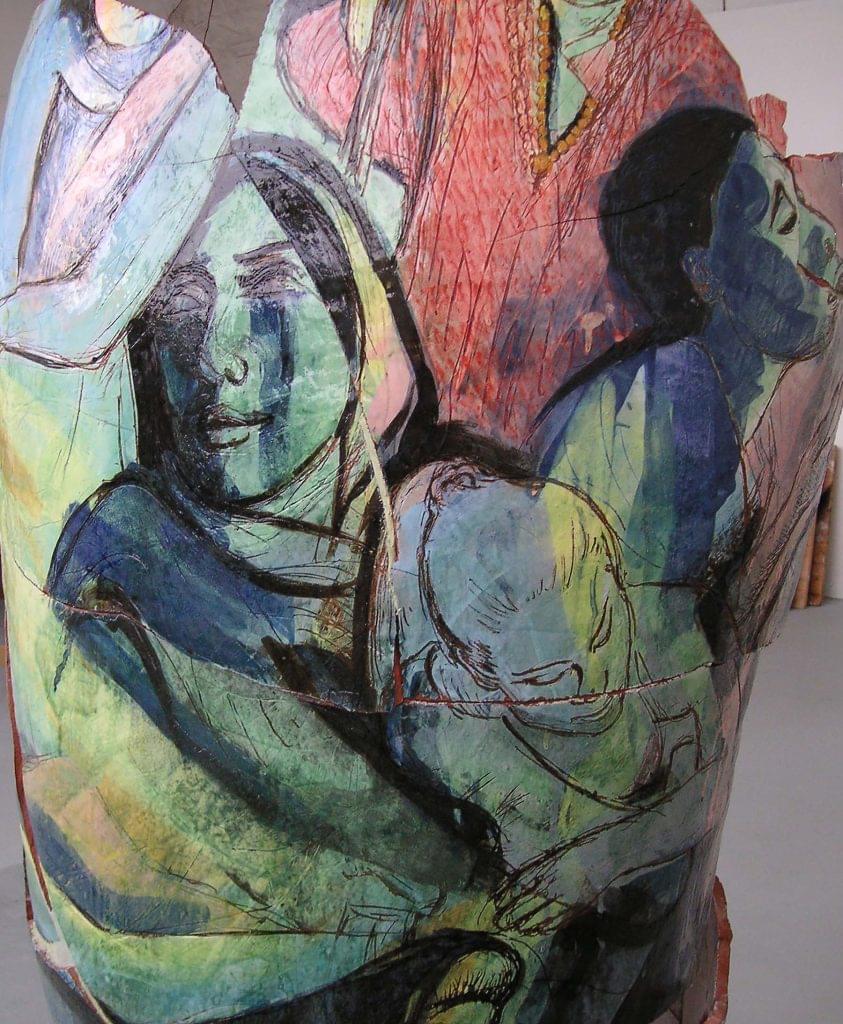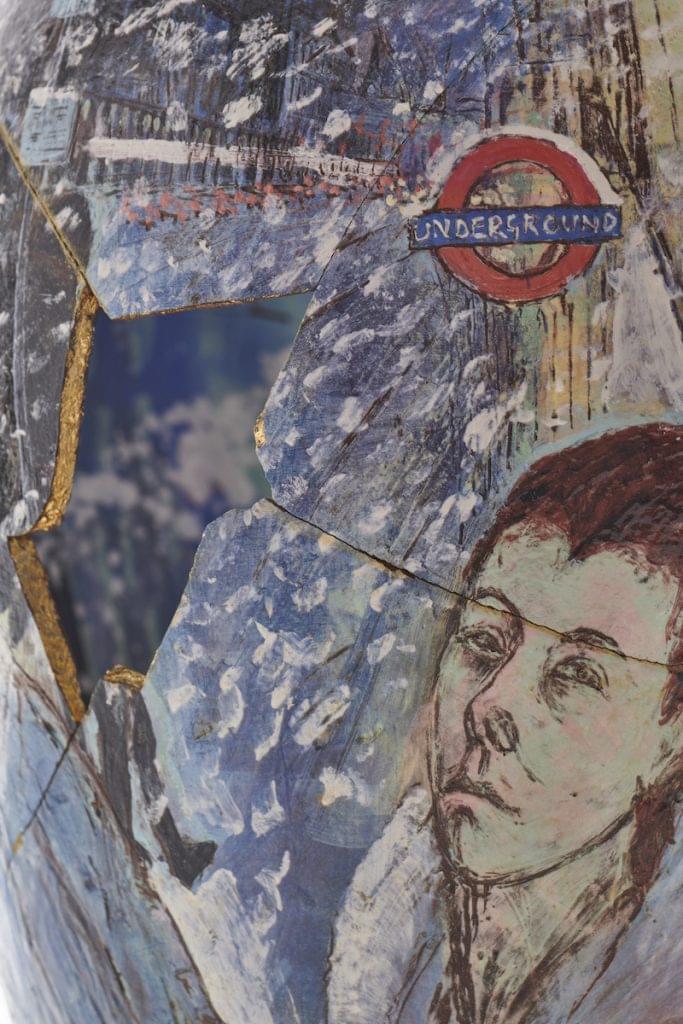By Dr Pat Jones
In her book, Some Kids I Taught and What They Taught Me, Kate Clanchy describes what it’s really like to work with young people coping with different kinds of adversity. Some of her stories come from experience working in an isolation unit (IU) in a secondary school, where excluded students behave in ways that test boundaries. One story concerns a teenage boy, one of Clanchy’s poetry group, whose many chances run out when he is found with a knife in school and escapes to hide in a tree. The heroic IU teacher, Miss B, climbs the tree to persuade him down. Afterwards she reflects with Clanchy, who said that what Miss B had done was ‘huge’. Miss B wishes that she had written it down. Clanchy continues ‘But she was too busy with the actual good she was doing, so I have written this down instead’. (Some Kids, p.76)
Clanchy’s words caught me because they express something I’ve noticed about many of the charities in the Caritas network. They are so busy with the actual good they are doing that it’s difficult to find time for reflection about the ethics involved or to explore what it means in practice to be grounded in Catholic social teaching. Front-line practice claims all their time and energy, as do the tasks involved in sustaining their organisational life. The staff and volunteers are tenaciously committed to their values, and in all the charities I’ve researched or worked with, their values are, as Clanchy might have said, ‘huge’. But perhaps more is possible?
At the other end of the spectrum is my PhD thesis. The product of three years’ research, neatly bound and with door-stopping weight, it studies Caritas charities and their relationship to Catholic social teaching (CST). It is an academic product. One of my supervisors remarked early on that it would be important to remember that hardly anyone would ever read your thesis. I thought mine would be different, because the focus is on practice, but he was right. A thesis has to have an academic voice and reach an academic standard. This tends to make it impenetrable to busy practitioners.
One part of the thesis was an attempt at a ‘thick’ reading of the work of several Caritas charities using the idea of the common good to interpret their work. I was trying to see what happens when you look at actual practice, in particular places, with real people, using a principle from CST. My interest was – and still is – in exploring CST from the bottom-up. Too often CST is presented or treated as a top-down activity; the documents give us ‘the teaching’ and we ‘apply’ it or ‘live it out’ in our own circumstances. This doesn’t leave much space for us to be agents or for our creativity, or the fresh perspectives that may come from our work. I wanted to find out whether we discover insights and questions in ‘the actual good’ our organisations are doing, and whether CST ideas really are useful in practice. What do they add?
CSAN charities already have powerful narratives in their vision, mission and values and their founding stories, which are like embedded capsule-sized versions of CST. All the charities I studied or worked in take their values very seriously and work at living them out. This is work that is never finished. One of the important ways in which the ethical reach of values collides with the voluntary sector culture of what makes an effective charity is the process of strategic planning and review, which often prompts renewed conversation with each organisation’s particular values and mission. I also discovered that there are relatively few people with any detailed knowledge of CST working in Caritas charities (or even in the Church?) The few that do have such knowledge – just under 20% in my research – were usually in senior positions, so their influence matters. But the work of the charities is done equally by the front-line advice worker or the volunteer, not just in the Board or leadership team. Add the reality that those who work in our charities come from diverse faith and ethical backgrounds, which means that the case for listening to CST has to be made in ways that are inclusive. We have to find out whether it is relevant and helpful to anyone, not just to those whose faith commitment finds an easy connection to CST.
This is what led to the idea of a community of practice (CoP). CSAN agreed to an experiment of offering a CoP of six sessions to staff from member charities, and there was sufficient interest to make it happen. A CoP is a learning community which shares a specific interest, a field of work. In a CoP, the relationships formed are crucial to the mutual learning that happens and the focus is on thinking together. A CoP is not a work team; it does not aim at specific outcomes. It’s not about acquiring knowledge but rather about examining and renegotiating our experiences. The agenda in a CoP comes from the participants.
What we did
Through CSAN, we proposed a CoP to explore the question ‘Is CST really useful in our practice?’ People from 12 CSAN member organisations expressed interest, and 19 registered to take part, although several had to miss one or more sessions. In the end, each session had between 9 and 15 participants from 6-8 organisations, including staff from CSAN’s national team. This was a good size of group for this kind of exercise. It allowed everyone to speak and enabled us to get to know each other. It became clear that sustaining commitment over six months is not easy as people have busy schedules, so we dropped the final session because several were unable to make the date. We met 5 times, for a 3 hour session. Excellent hospitality was provided by CSAN in Romero House. I facilitated, and prepared brief notes after each session, and some thoughts to prompt the next discussion. Those who took part included front-line workers, people working in policy and advocacy, several CEOs, a head of HR and an education officer.
It was crucial that the agenda arose from participants’ experience, so we spent some time in the first session building a list in response to the question, What are the ethical questions or policy dilemmas that are most challenging in our work? Around nine themes emerged, which we then used as starting points for subsequent sessions. We also spent some time noticing different degrees of familiarity with the content of CST. I suggested we see CST as a way the institutional Church claims our attention for the social vision prompted by Christian faith. But there are other ways that the vision is communicated. The wider field of Catholic social thought opens up CST as a conversation; the teaching of bishops’ conferences makes it local and more specific; and the social mission practice of the Church in its agencies and its members enacts this vision.
Later in that first session, we also took an example from practice, the issue of how we talk about and understand prostitution. This is a crucial area for women@thewell (where I was currently doing some separate research) but it also matters for all of us. The language we use shapes our attitudes and those of others around us. I presented some core ideas from Catholic social teaching on work that strongly support the position of women@thewell in which they resist the ‘sex work’ narrative because it normalises something which is not ‘work’ but exploitation and violence against women. We discussed how we understand prostitution and moved on to the implications of the principles for HR aspects of how all CSAN charities work. This was a taster, taking an issue that would not be central or familiar to most of the participants, and looking at it afresh using CST.
In the following sessions, we established a pattern. We began by sharing our experience in response to a question, for at least an hour and sometimes more. Later in the session, I would present some principles from CST and associated theological ethics which seemed useful, always aiming at no more than 15-20 minutes. Then we continued the conversation. In one session, a couple of participants presented case studies of advocacy from their experience, which was particularly valuable. The important point about the process is that most of the time was used to explore and reflect on practice; the engagement with CST principles came late on in the conversation. My aim was to pick out only what was directly relevant to the theme were exploring.
The themes covered were varied. We started with sessions on the ethics of funding, and the dilemmas associated with accepting statutory funding in particular, leading to reflection on our relationships with the state and the CST view of welfare systems. We then explored advocacy and public voice, and pondered the relationship base that makes advocacy authentic, and the kind of reasoning that CST proposes. We moved on to analyse and reflect on the tools we use in our practice, and the values on which these are based, connecting these to exploration of CST’s understanding of the human person, and especially to the meaning of human dignity and our shared vulnerability. We came to see that we ourselves are the most crucial tools. We recognised that we could explain what the CSAN charities do as making the meaning of dignity concrete and real. We also worked in a later session to reflect critically on the impact of a ‘results culture’ in voluntary organisations and how we can be pulled towards ways of viewing people and time which we want to resist.
What did we learn?
About a community of practice model of learning
The conversation was as unstructured as possible. There was a focussing question and broad theme, to which I would sometimes bring the conversation back, but it was important also to see where the tangents led. Anna Rowlands talks about CST ‘circling round the truth’, and it often felt like that. We circled, and returned, and went deeper, and searched for the most important bits. The process of thinking continued between sessions. I began each session by picking up the end point from the previous one, and trying to deepen it. I used the notes to try to pinpoint what had been most significant.
From my point of view, the model proved to be valuable. By session 4, we had reached a different kind of conversation, with a quality of reflection I think is unusual. I learned again that it takes time to get to this. In my earlier life as an adult educator, I always thought a learning group got to break-even point after 3 sessions, and then from the 4th session, you’re into ‘profit’, in other words, really useful learning, not just some new information or ideas. Feedback at the end suggested other participants liked the model and found it worthwhile. Some of the comments hint at further potential; ‘we only scratched the surface’, one participant said. You need to build the relationship base that enables real shared learning to take off. It would be impossible to do a real community of practice in a one-off seminar. Another participant was left with a question; what makes people or organisations do the right thing, given that some people who know CST are not necessarily doing the right thing, whereas others who know little of CST are? A big question to ponder is a good learning outcome. I was glad that several evaluations described the sessions as ‘thought-provoking’.
About whether CST is really useful?
The jury is still out. As you get to know it, and inhabit the CST thought-world, it becomes more useful. One participant described this as ‘carrying the orientation with me’. For others with less familiarity and from a different ethical or faith background, formal CST is less accessible or even a bit alien. For those working to strengthen values and ethos in their charities, what we were doing made sense, particularly in our focus on relating it to practice. Another participant commented that the exercise reminded her that CST is ‘only useful to us in practice, never in the abstract’. There is a need to do more in the CSAN network to work out how to make CST really useful.
In the sessions, I was struck again by how much of our conversation before the part where we looked at CST ideas was already ethically oriented, but in everyday language. In other words, I think people already know and have an instinct for a lot of the principles and values CST conceptualises, even if they don’t work from an explicit faith-based worldview. Our charities are already hospitable ethical workshops. This doesn’t mean CST has nothing to add. One of the useful discussions was about resisting the culture of results and holding onto different ideas about what matters, particularly relationships and the small things that make people feel better about their lives. (I would recommend here Carmody Grey’s paper on time and measures of success in relation to Laudato Si, published in New Blackfriars Vol 101 Issue 1091, January 2020).
I also reflected on how many languages we use. We moved between ethical reflection, strategic analysis, understandings of professional good practice and political perspectives, with an occasional dash of theology or scripture to taste. In practice, people don’t separate these out. It was interesting to use CST in this set of cross threads, a way of taking CST onto the street, as it were, getting its hands dirty.
About what CSAN charities experience has to offer to CST
This is the most difficult bit to achieve. I often felt that we got to the point of tugging on a loose thread which, if we could unravel it, would lead to something of significant value. Most of all in the discussion about what dignity means, I thought we turned it around, seeing human dignity as communal, so that the dignity of all of us is diminished when people are homeless or excluded. It would need more time to dig out the truth embedded in our experience, and the result is not likely to be new principles but rather a more urgent and dynamic interpretation of what they mean. We also noticed the gaps and some of the weaknesses in CST; its failure to discuss gender inequality adequately, for example. So we do strengthen CST by pointing these out, inviting those who hold the role of teaching in the Church to be more reflective about its limits and the agenda we need to see addressed.
What next?
When life gets back to normal, I will be reflecting with CSAN about whether we could repeat and extend this experiment. It’s difficult, because to work well, it needs a stable group, not very large, to meet over some time – and that’s difficult for our scattered busy charities. But bringing together people from different job roles, different personal ethical and faith commitments, and different fields of work is really important. Most of the evaluations mentioned this. So we should continue the experiment.




You must be logged in to post a comment.